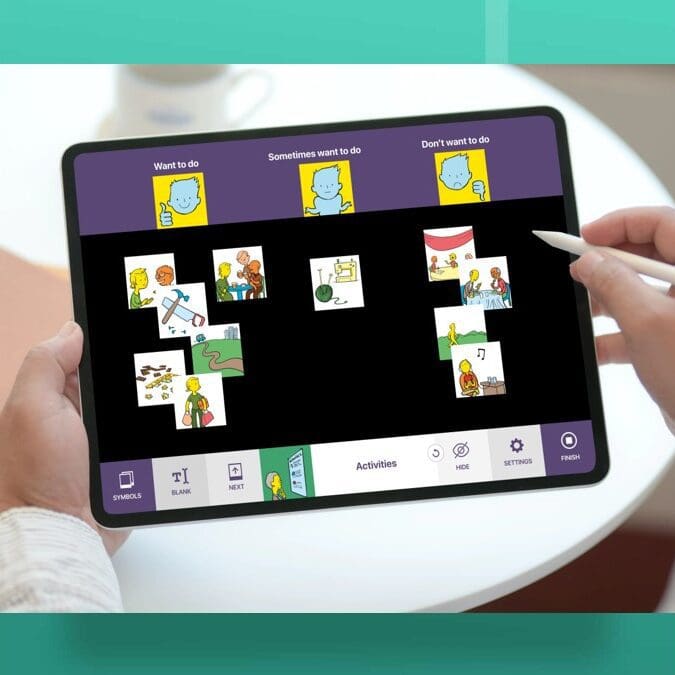Gaining views on social care outcomes
What are social care outcomes and how do we measure them? The Adult Social Care Outcomes Toolkit (ASCOT) was developed over a number of years as a way of measuring user views on their social care. The ASCOT has been developed by researchers at PSSRU, University of Kent http://www.pssru.ac.uk/ascot/index.php
There are eight domains of ‘social care-related quality of life’ included in the ASCOT. These include:
- Control over daily life
- Personal cleanliness and comfort
- Food and drink
- Personal safety
- Social participation and involvement
- Occupation
- Accommodation cleanliness and comfort
- Dignity
The measure has been tested with service users from different user groups and there are a number of different versions available, including an easy-read version.
Many people with who have communication difficulties are not able to provide views via interview alone. Talking Mats is a communication tool that can be used with people who have communication difficulties. The mat consists of a set of symbols or pictures that are tailored to the subject you want to talk about.
The ASCOT Talking Mat: Tizard Centre’s Jill Bradshaw with Ann-Marie Towers and Nick Smith (both from PSSRU) have worked with the Talking Mats team at Stirling to develop three ASCOT Talking Mats. These will enable people to give their views on:
- Where I Live. This is a starter mat, designed to introduce people to the approach and for those people who might find more abstract concepts more challenging;
- My Care. People will be supported to give their views about whether aspects of their care are going well or not going well.
- Control over my Care. People will be given tools to think about how much choice they have over different aspects of their care. The second and third mats have options for both basic and more abstract concepts.
The TM version of the ASCOT will enable researchers to investigate user views regarding social care outcomes. By using this more inclusive methodology we will be able to engage with these seldom heard groups. The use of symbols in combination with a structured approach will enable us to represent these participants’ own feelings/perspectives in the research, rather than us having to rely on the views of proxies.
Researchers at the University of Kent will be piloting the ASCOT Talking Mats with people with dementia and people with intellectual and developmental disabilities (learning disabilities).
Jill Bradshaw (Accredited trainer) Lecturer in Learning Disabilities, Tizard Centre, University of Kent
Ann-Marie Towers (Research Fellow) and Nick Smith (Research Officer). PSSRU, University of Kent
 Online training login
Online training login 






